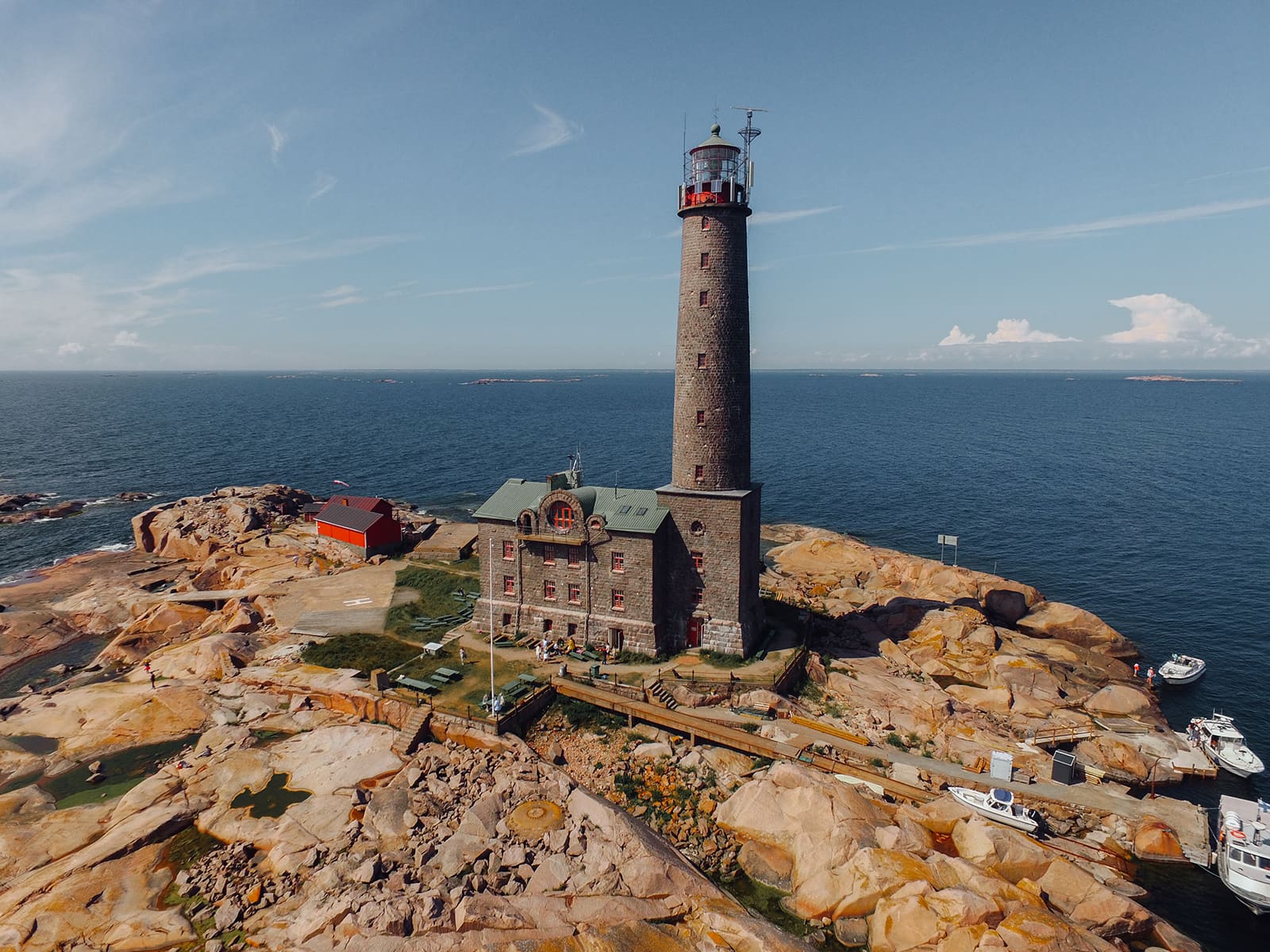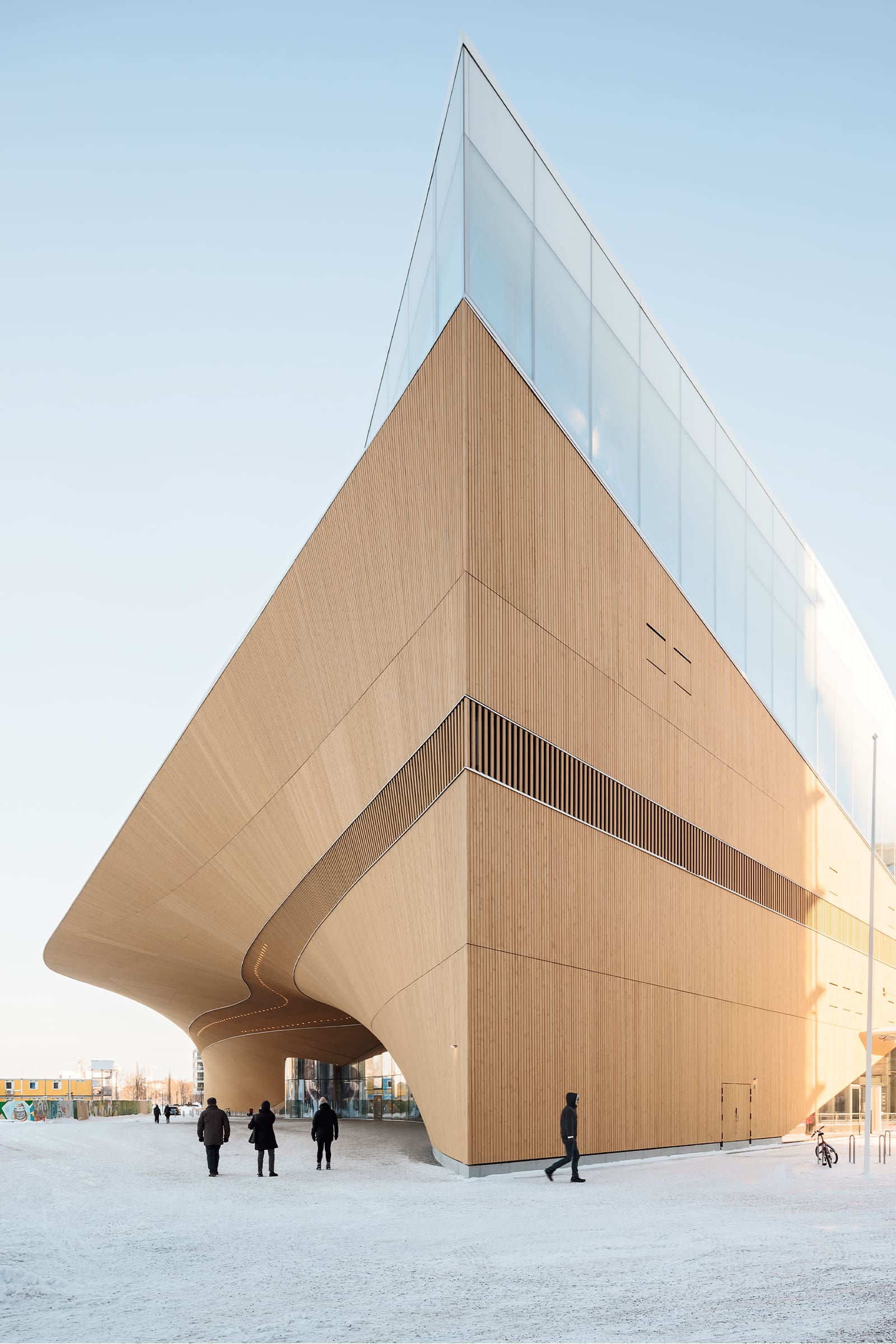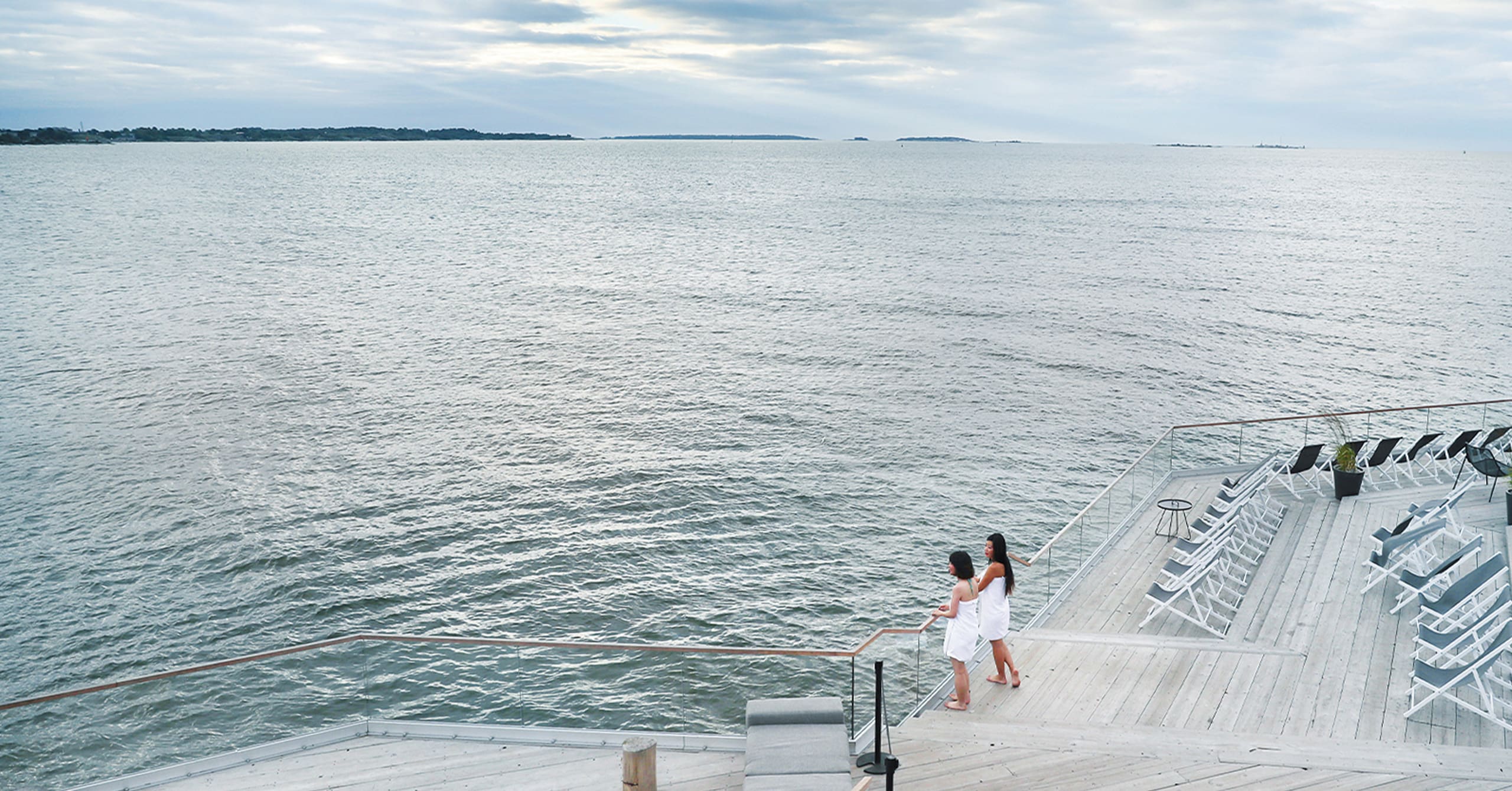A view of Löyly Helsinki photographed by Harni Tarvainen, Visit Finland.
A view of Löyly Helsinki photographed by Harni Tarvainen, Visit Finland.
Why was Finland named the happiest country in the world six times? Gino De La Paz shares how Finns find joy in simplicity.
In late 2015, around the time Adele’s “Hello” proved impossible to escape, I arrived in Finland.
Finns consider November the worst month of the year. The leaves have fallen, the sun has absconded to Mallorca, and snow has yet to brighten up the landscape. The weather during this time is so comically bleak that Slush, a startup and tech event held annually in the Finnish capital, put up banners the year after that read: “Nobody in their right mind would come to Helsinki in November. Except you, you badass. Welcome.”
Badass. I like the ring of that.
Finland isn’t the obvious destination for those considering a personal rebrand. People move here for one of three things: love, studies, or a job. Brave souls who stay do it consciously, not because they saw it on Emily in Paris. In my case, an employment contract was waiting at a pan-Nordic communications consultancy.

Not only was it an interesting opportunity professionally, it was also a chance to live in a region that represented everything that’s going right in the world. It’s been eight years since, a few sleeps short of a decade, and I’ve made Helsinki my permanent home.
Within that period, Finland was named the happiest country in the world six times. This nation of 5.6 million, a darling of global surveys and international indices, is frequently ranked one of the freest, safest, and most stable.
But in a place that’s cold and dark for a considerable chunk of the year, do locals really have much to be happy about?
For most, the word “happiness” evokes images of people smiling, laughing, or given to exuberance, none of which typify reserved Finns. Nonetheless, their poker faces belie a deep enjoyment of the highest levels of personal freedom, choice, and wellbeing on the planet. It’s something I know from experience.
Introvert’s Haven
First, daily interactions with colleagues, clients, and friends have taught me that Finnish society is based on trust and kindness. Valuing trustworthiness and reliability is at the core of the Finnish mindset; When someone says they’ll do something, they can be counted on to deliver.
There’s a high degree of trust in public institutions such as the government and police force. Families can rely on the safety of the outdoors as well. Children in Helsinki play freely and independently in yards and parks, and it’s common to see primary school kids take public transportation by themselves.
Next, Finns favor cooperation over competition. Working together, collectively, toward a specific good is the practice. In a society where rules matter and consensus is key, equality is a recurring theme. It was refreshing to find out that from a young age, Finns learn to not think of themselves as special or expect anyone to be special.
Moreover, the low level of income disparities in Finland means there’s only a light sprinkling of wildly wealthy individuals. The Finnish sauna is a great equalizer and represents the non-hierarchical nature of Nordic society. “Everyone is created equal, but nowhere more than in a sauna,” goes a saying.
Last, unlike Americans, with their tendency toward constant hyperbolic exaggeration; and Brits, with their evasive doublespeak, Finns are direct and sincere. They’ll only say something when they mean it.
Finns aren’t into small talk either and idle chitchat is practically non-existent. Silence is a way to give each other space and demonstrate respect; it’s the etiquette. Finns are noticeably quiet on the metro, tram, or bus, and it’s heaven for a social introvert like me. Ice hockey championships and Eurovision viewing parties, however, are another thing.
Simple Life
Living in Finland is glorious in its simplicity. A social safety net ensures that everyone has equal access to the fundamentals, such as free education, taxpayer-funded health and dental care, and unemployment benefits, among others. Finns are free from the stranglehold of stress or fear—that, for example, you’re an illness away from bankruptcy or you’ll go destitute if you lose your job—allowing them to focus on enjoying life.
It’s easy to feel content in a city like Helsinki, where the only threat during the warmer months is pollen, and icy pavements are the main concern in winter. From my perch in the city center, I can walk to museums, parks, shops, and restaurants. Weather permitting, I can have a picnic on the rocks by the sea, go for a hike in one of the many forests in and around the capital, or take a ferry to a nearby island. Across the country, whatever the season, there’s something to see, do, and experience that will allow you to find your inner Finn.

The national culture supports spending time alone as well as with friends for one’s mental health. You won’t be judged for wanting to stay home on a weekend to binge-watch TV series or catch up on sleep. In fact, Finns will most probably say being away from people sounds like a lovely plan.
Shifting from a quest for “more, better, faster” and senseless, endless grinding to get ahead—as I’ve been drilled since childhood—to a more down-to-earth sense of “just enough” has completely altered my personal worldview. It seems the secret to Finnish happiness lies in living better and more sustainably with less, thus tempering the anxiety of wanting more. It’s not about the extreme highs of super-achieving, but about the gentle middle ground of simply being.

